Igniting New Ways of Working with Anja Heggli, Co-Founder of Punkt.Null

We recently spoke with Anja Heggli, co-founder of Punkt.Null in Switzerland, about her work in organisational development, alternative governance, and collective intelligence. Anja shared her perspective on today’s challenges, how she helps organisations evolve, and the mindset shifts needed for transformation.
1. Who is Anja Heggli and what is Punkt.Null?
I am an organisational development consultant. I originally studied industrial and organisational psychology and spent ten years at Swisscom, a large telecommunications company, working on change processes, conflict management, and leadership training.
Six years ago we founded Punkt.Null with the idea of helping organisations find more organic, purposeful ways of collaborating, where they can truly use their collective intelligence and reach their potential.
I live in Bern, Switzerland, and outside of work I practise Jiu Jitsu. I enjoy martial arts and the chance to use my body as much as my mind.
2. What are the key challenges you see organisations facing today?
The environment is becoming more complex and uncertain, and organisations need to find ways to adapt quickly. At the same time, people are craving stability.
This creates a strong tension: knowing we have to change continuously, while wanting stability, to feel safe and not to be overwhelmed. Many conflicts and power dynamics remain unsolved because addressing them requires vulnerability. But vulnerability itself means stepping into uncertainty - the opposite of what most people feel safe to do right now.
The real challenge is bringing together these competing needs: stability and safety on the one hand, and continuous adaptation on the other.
3. How are you helping organisations transform?
We start by analysing underlying dynamics: how people behave, how the system behaves, and what assumptions drive them. Using Ken Wilber’s quadrant model, we introduce new structures and methods that set the ground for new behaviour, mindset, and culture.
We then accompany teams in their daily work: we help them implement new meeting and decision making methods and reflect their collaboration and power dynamics on the job in order to transform the collective dynamics and the culture. In parallel, we create training and reflection spaces where people can explore their personal challenges, reflect on underlying assumptions and practice new skills and habits.
Sometimes this is very practical. For example, we run exercises where people practise saying “no” and reflect on whether it came across as convincing and aligned with their body language. These small habits help develop new skills that anchor transformation.
In order to ensure the whole system changes we usually form a change team that regularly reflects on the changes and the difficulties during the transformation process allowing us to continuously adapt and give new impulses into the organization through specific interventions and communication measures.
4. What are the biggest mindset shifts required to support this transformation?
One of the biggest shifts is our understanding of power. Using power or being powerful is a big taboo in today’s society because many of us associate power with power abuse.
However, we all use power every day to make decisions, fulfill our needs and reach our goals and we need power in order to take action, to change, to create. Therefore, it is essential to embrace our powerful side consciously, both individually and collectively, otherwise what we fear happens all along: By neglecting our own power it goes underground and we risk abusing it unconsciously.
Another important shift is seeing conflict and tension not as problems, but as opportunities for development. We’re socialised to avoid conflict, but real transformation requires facing tensions, dealing with the emotions they bring, and using them as a source of growth.
5. What role does technology play in anchoring new behaviours?
Technology helps make things transparent and explicit. Power and conflict often get handled implicitly, which creates confusion and frustration.
With technology, roles and expectations can be made explicit. That frees people from guessing or carrying hidden expectations. If something isn’t done, you can talk about it openly and resolve the tension. Making the implicit explicit creates clarity and gives organisations the opportunity to deal constructively with challenges.
6. A moment that made it real
We worked with an organisation transitioning to self-organisation. One team was struggling, especially the former manager. She felt unsure about her role, even though her responsibilities were clearly defined.
Through our work together, it became clear that she believed her job was to make everyone happy, anticipate tensions before they happened, and solve them immediately. She thought she had to guarantee zero fluctuation and prevent anyone from leaving.
She eventually realised this wasn’t her role anymore. Instead, her role was to allow tensions to be voiced and handled by the team. That mindset shift - from protector to co-creator - enabled true self-organisation. It was powerful to see how deep her assumptions were, and how freeing it was for her to let go of them.
7. If you could share one piece of advice with leaders seeking to evolve their organisation, what would it be?
Figure out what you really want, what you don’t want, and where you need help. Right now there’s a hype around new organisational models, and many leaders feel they should adopt them. However, doing something out of pressure is the opposite of what organic, purposeful collaboration means.
It’s okay not to implement a new organisational model. What matters is what’s truly important to you and your organisation. Start there, face your reality, and work from it. This is the place where meaningful transformation begins.
8. What questions are you still holding?
I’m working on creating spaces where people can express who they truly are, without me imposing my own ideas of what is right. At first, I believed self-organisation was the answer for everyone. Now, I see the importance of letting organisations and leaders find what’s right for them.
I’m also exploring psychotherapy. It offers powerful tools for working with emotions and transformation, and I’m interested in how we can bring these into collective settings.
Transformation doesn’t just happen at the individual level, it happens in systems, cultures, and shared assumptions. Every interaction shapes a new culture, and I want to learn how to use this knowledge to help organisations evolve together.
Closing Thoughts
For Anja Heggli, new methods and structures create the basis for new collective habits and a new culture. However, using these methods with a new mindset and new skills doesn't happen automatically. It's about people's individual and collective development: their vulnerability, their courage, and their willingness to face uncertainty and complexity together. She reminds us that embracing uncertainty and therefore our own vulnerability is the key for meaningful transformation.
At Punkt.Null, her work focuses on creating safe spaces helping organisations and their leaders embrace their unique power and face complex tensions in order to fulfill their purpose and highest potential.
It is in this same spirit that Talkspirit supports purpose-driven teams by providing a clear, shared space for communication, collaboration and governance which allows organisations to make their responsibilities and expectations transparent and therefore creating the basis for the meaningful transformation Anja describes.


Révélez le potentiel de votre organisation.
Nous sommes là pour répondre à toutes vos questions et vous accompagner dans vos projets.









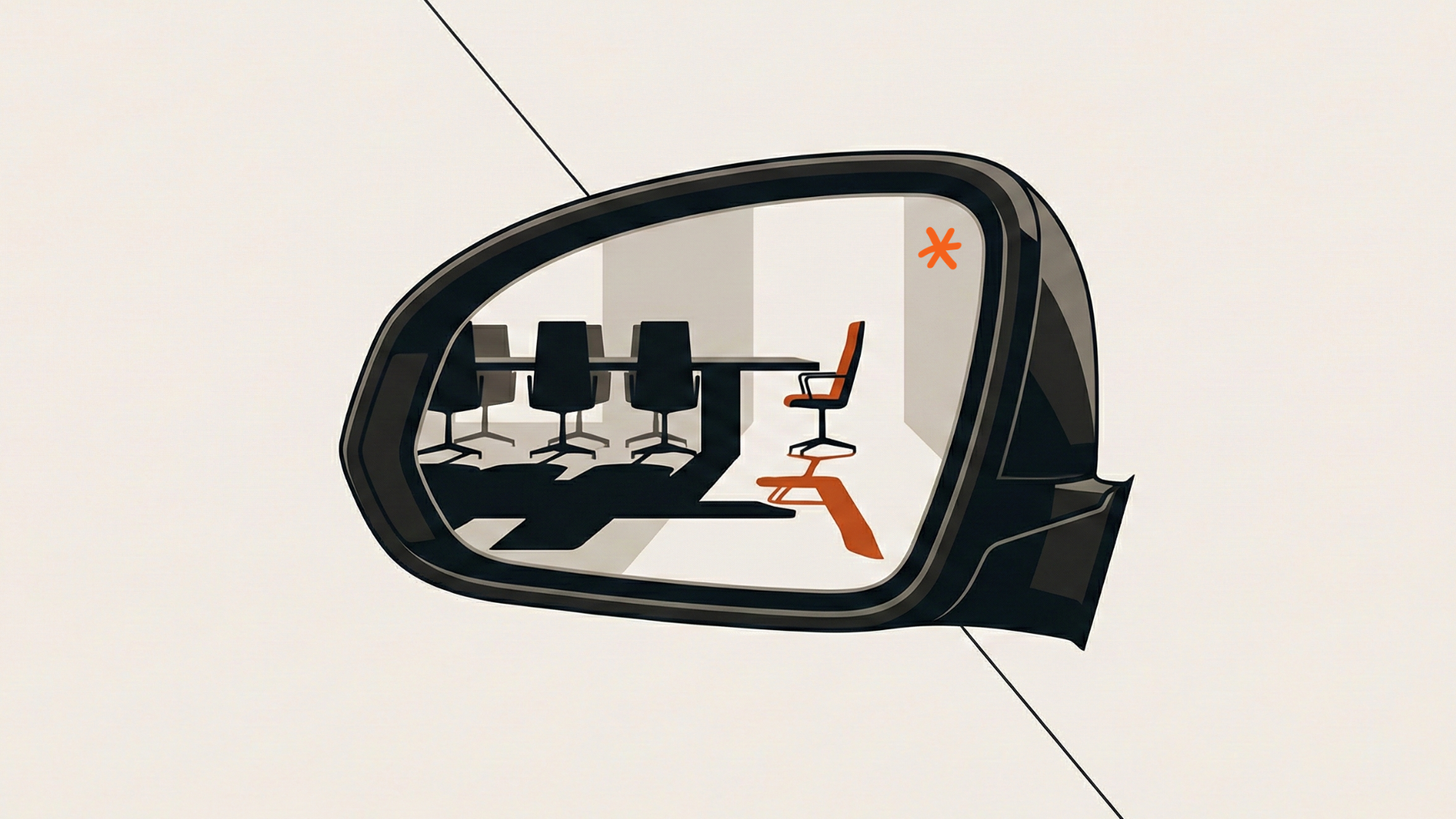
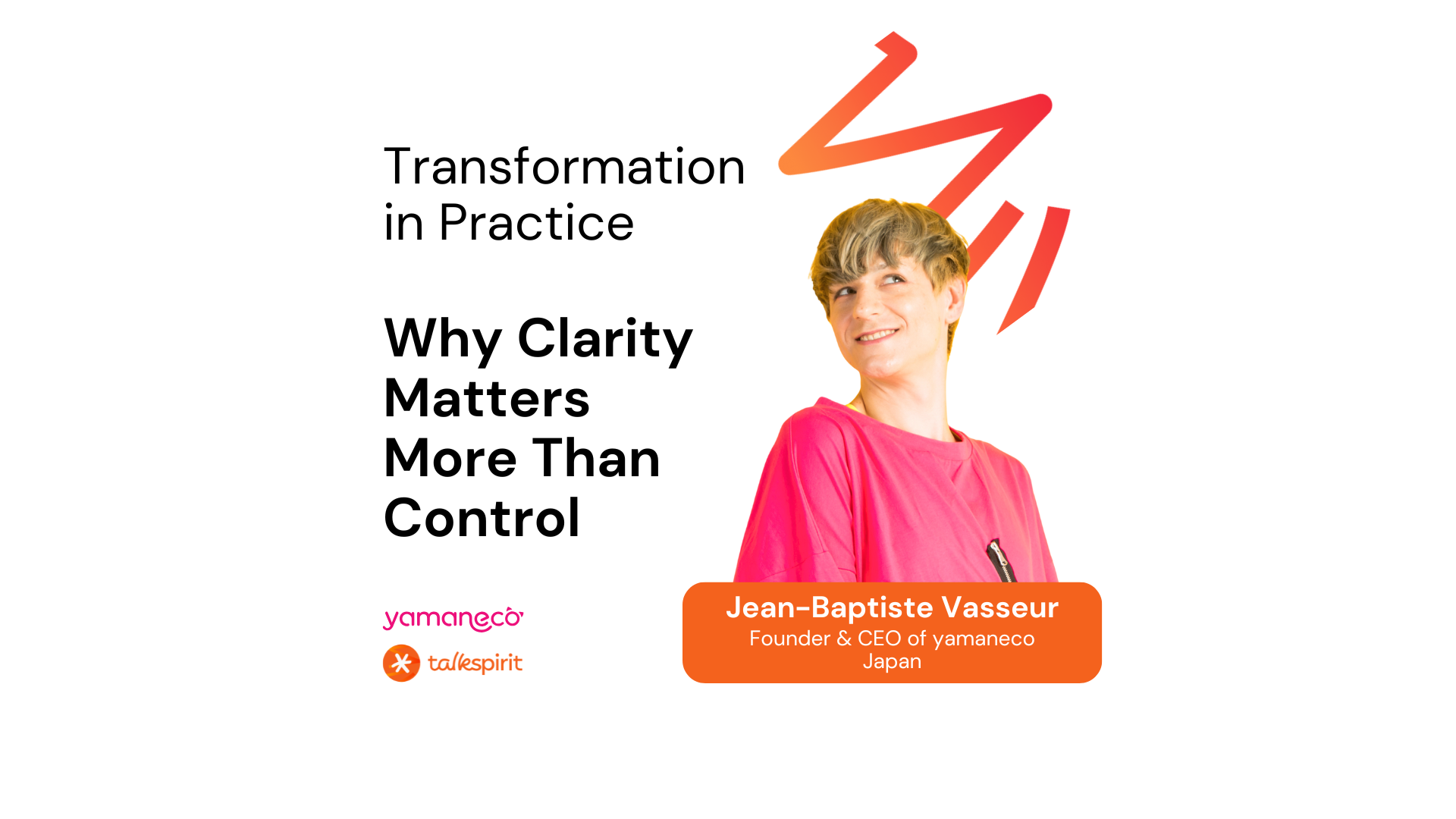
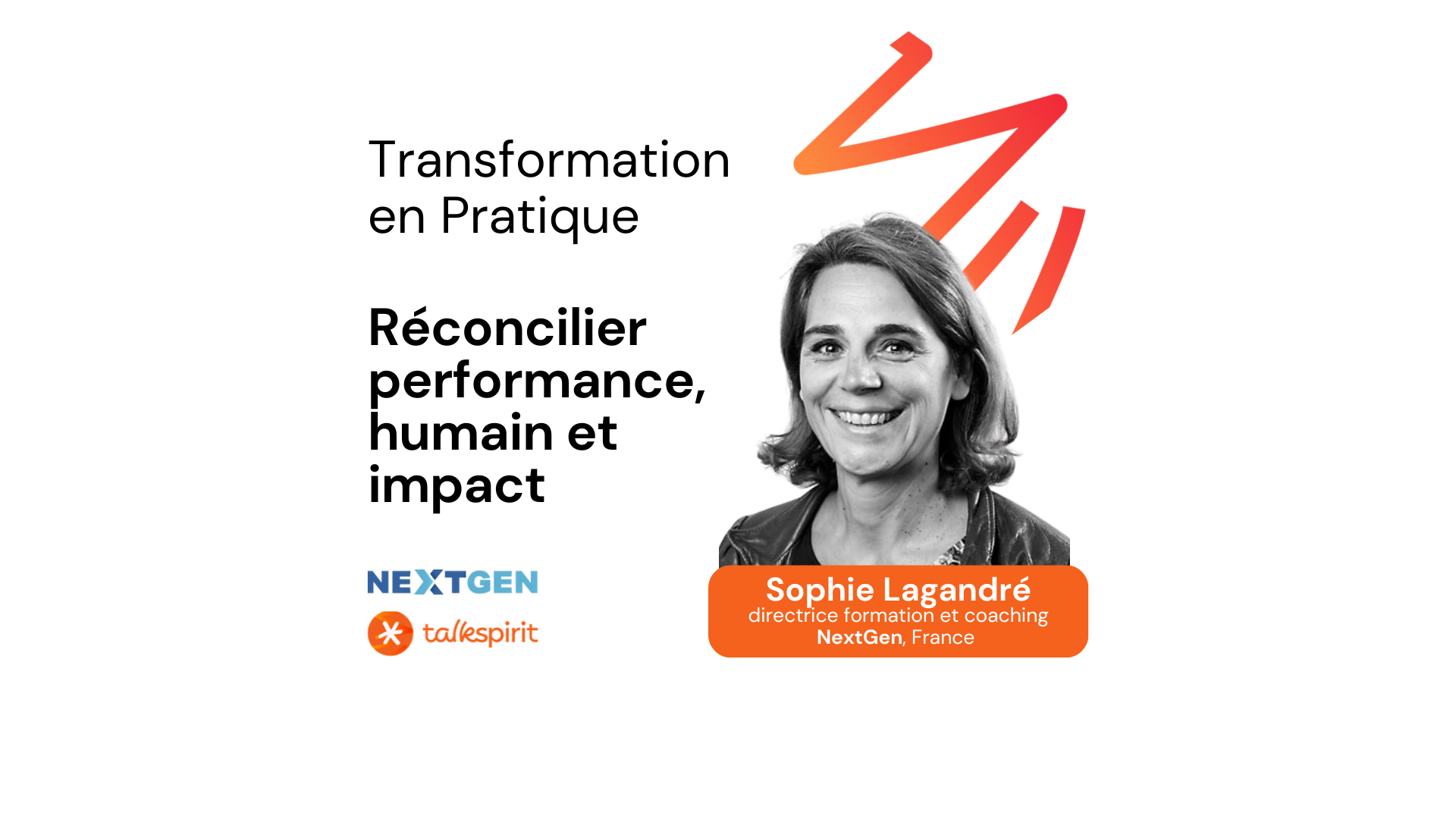
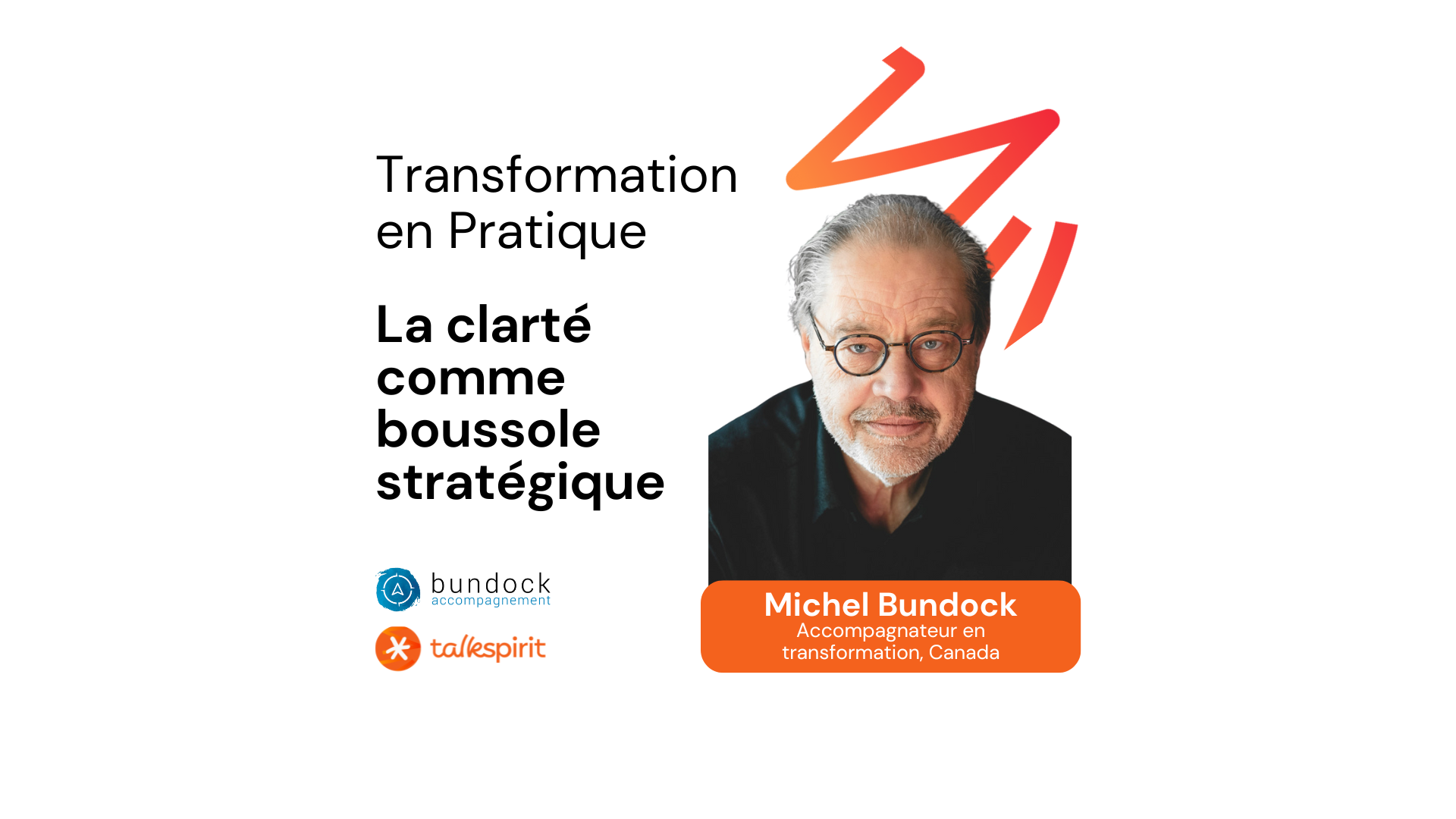

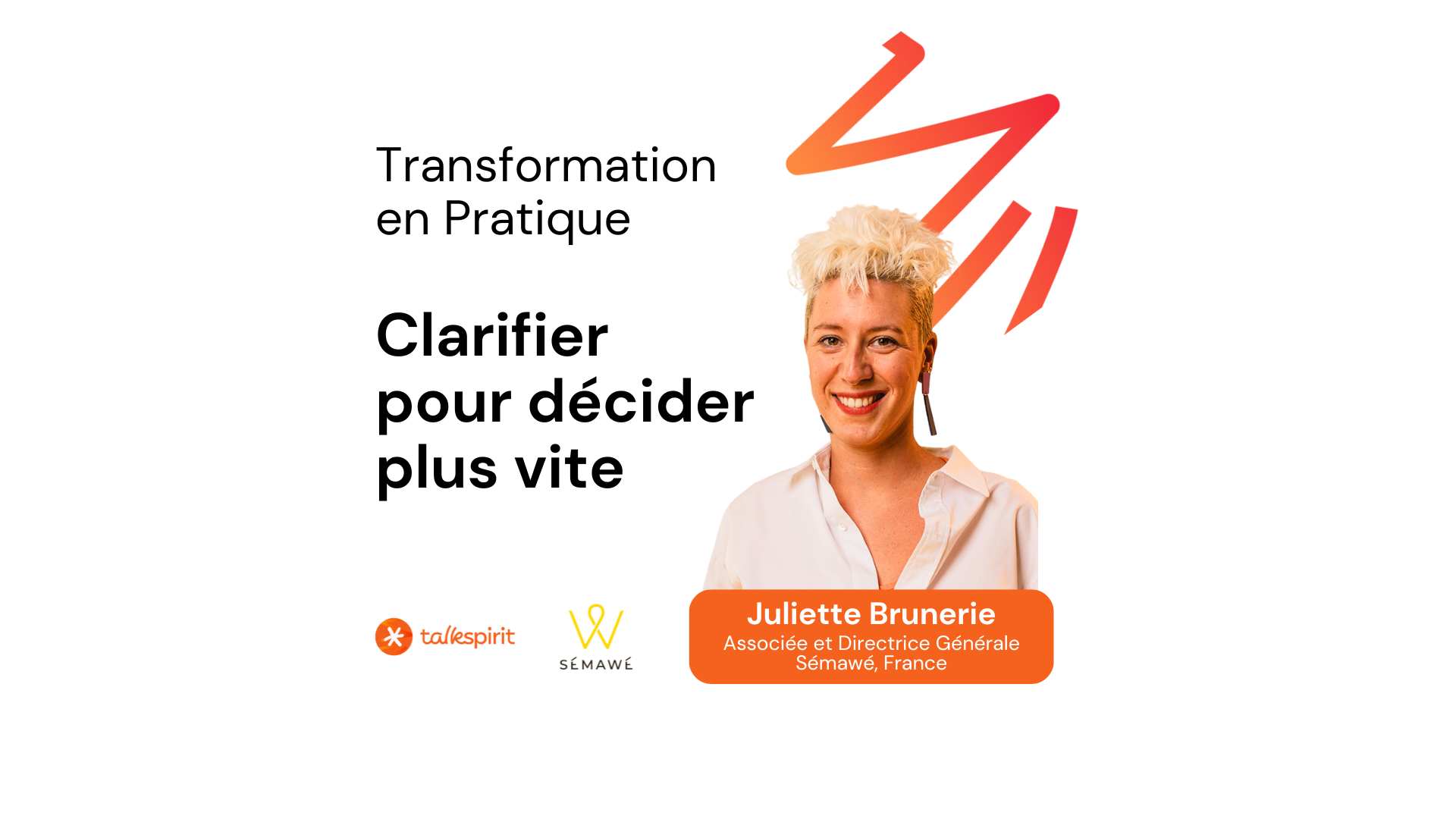
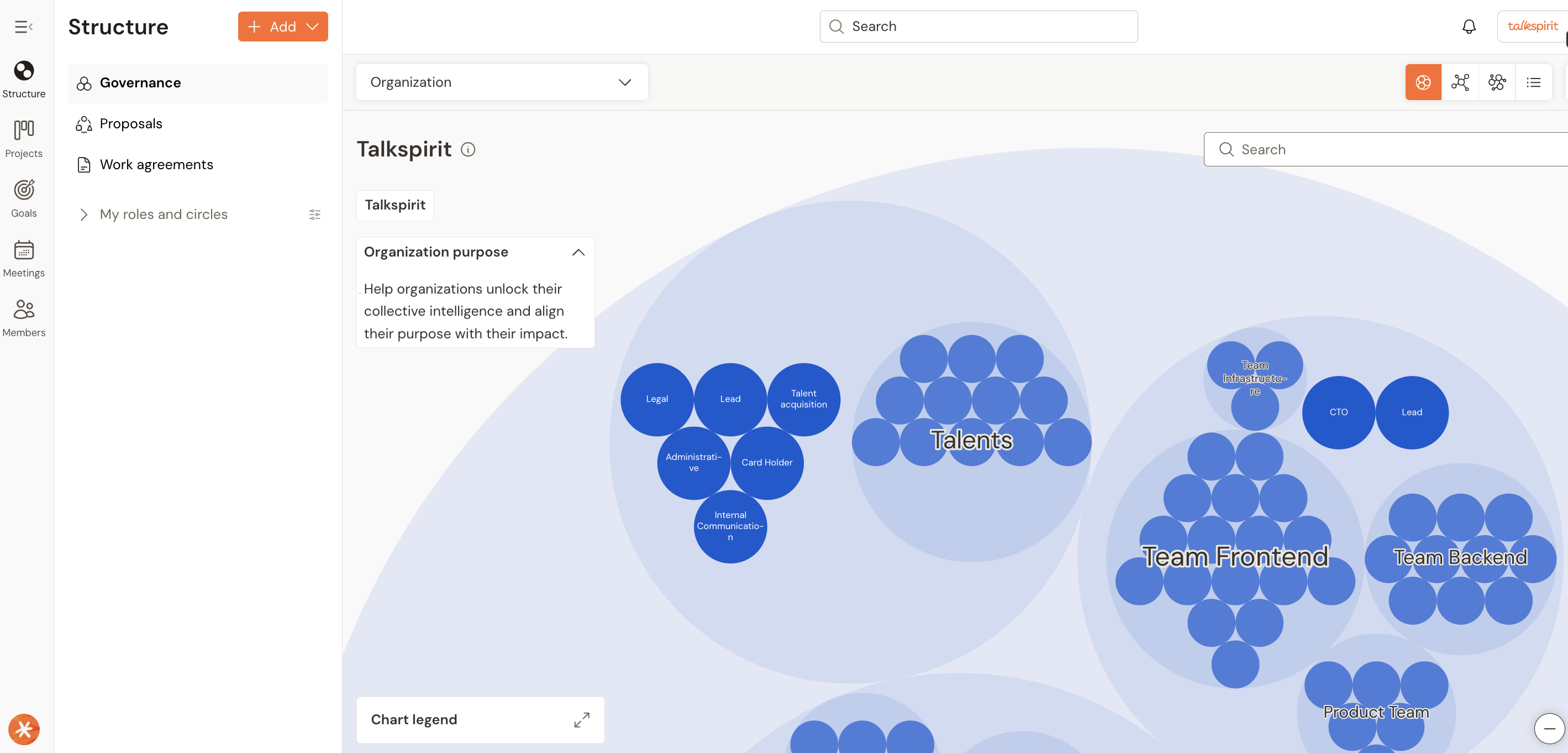
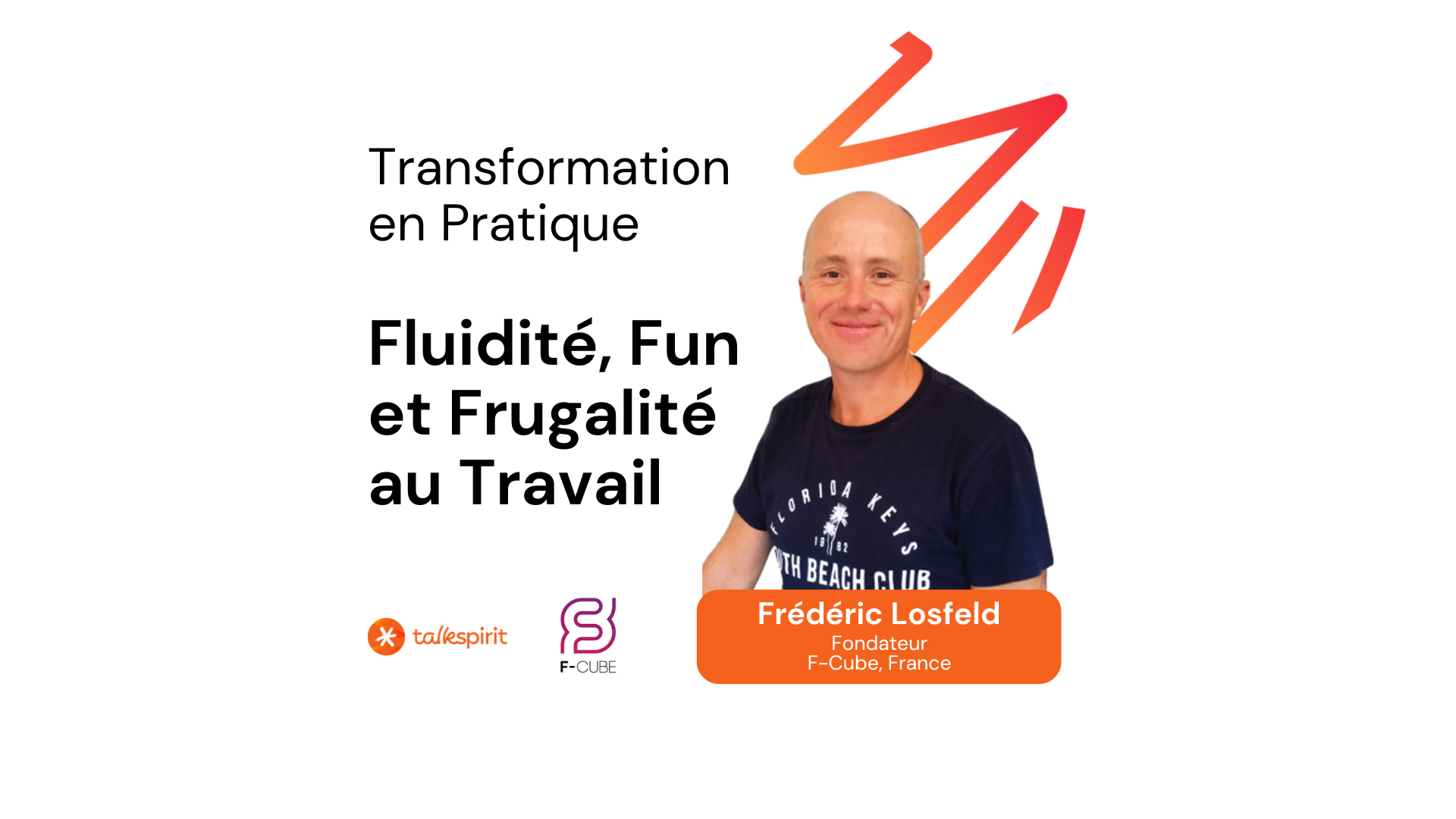
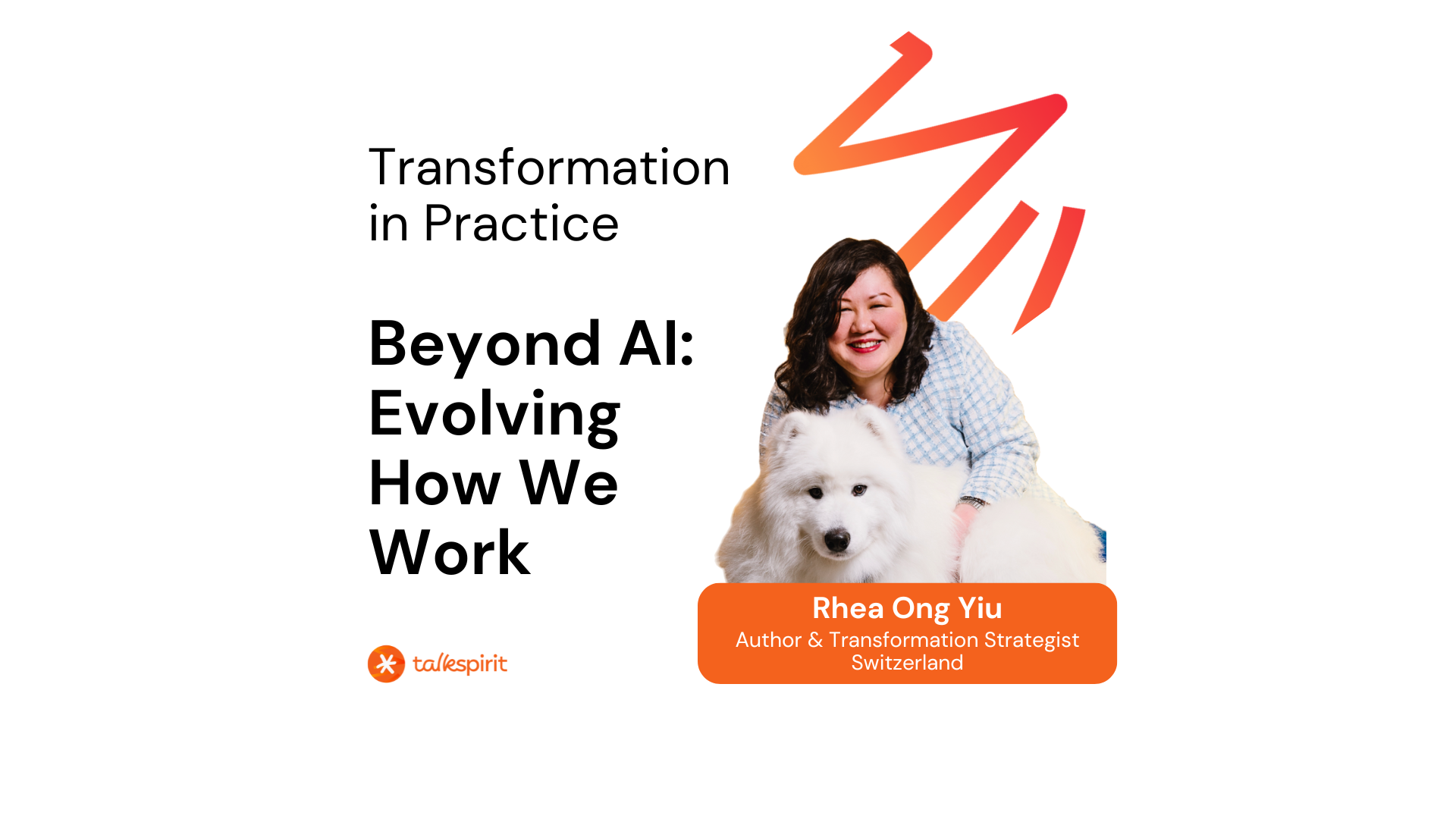
.jpg)

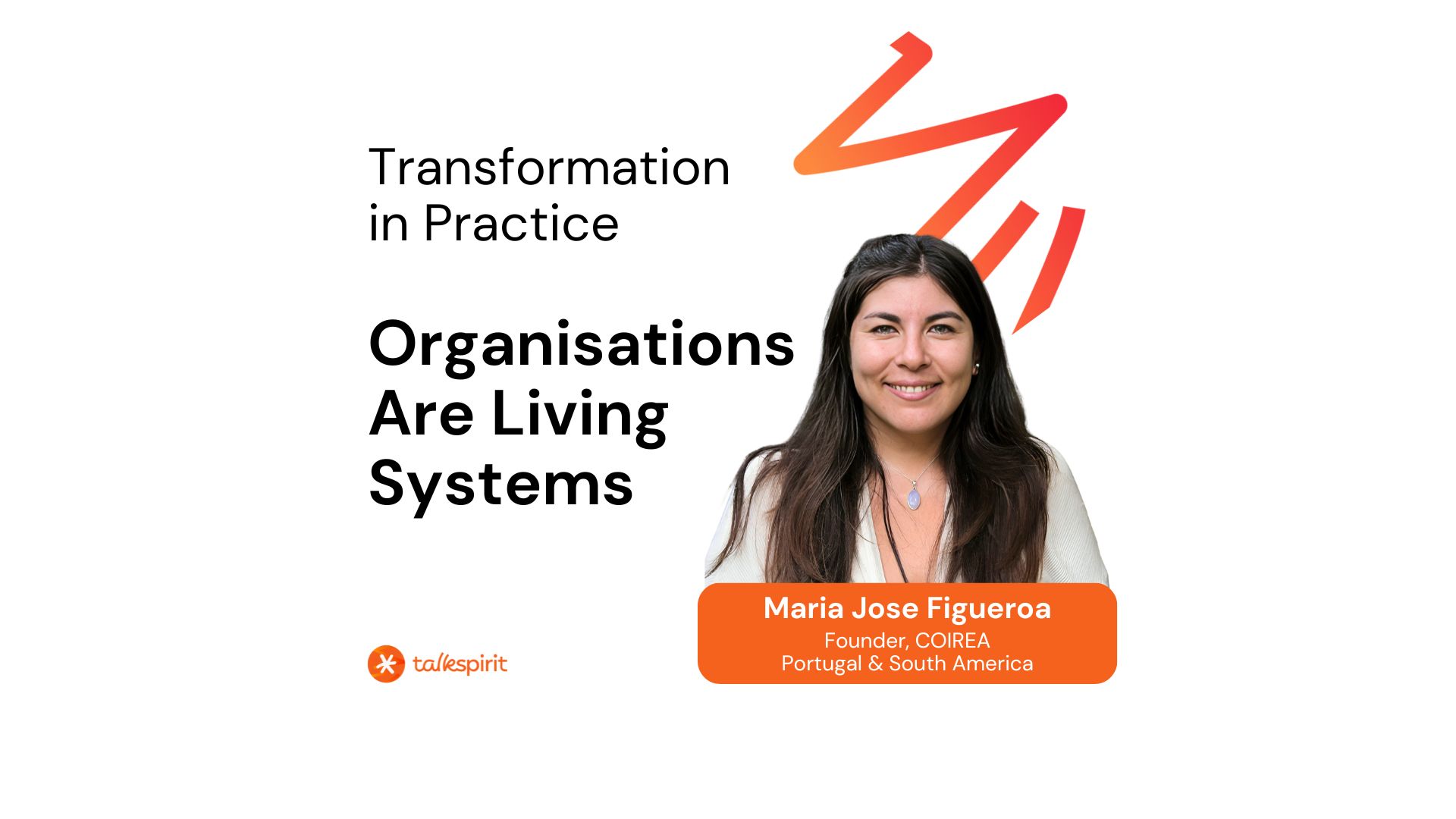

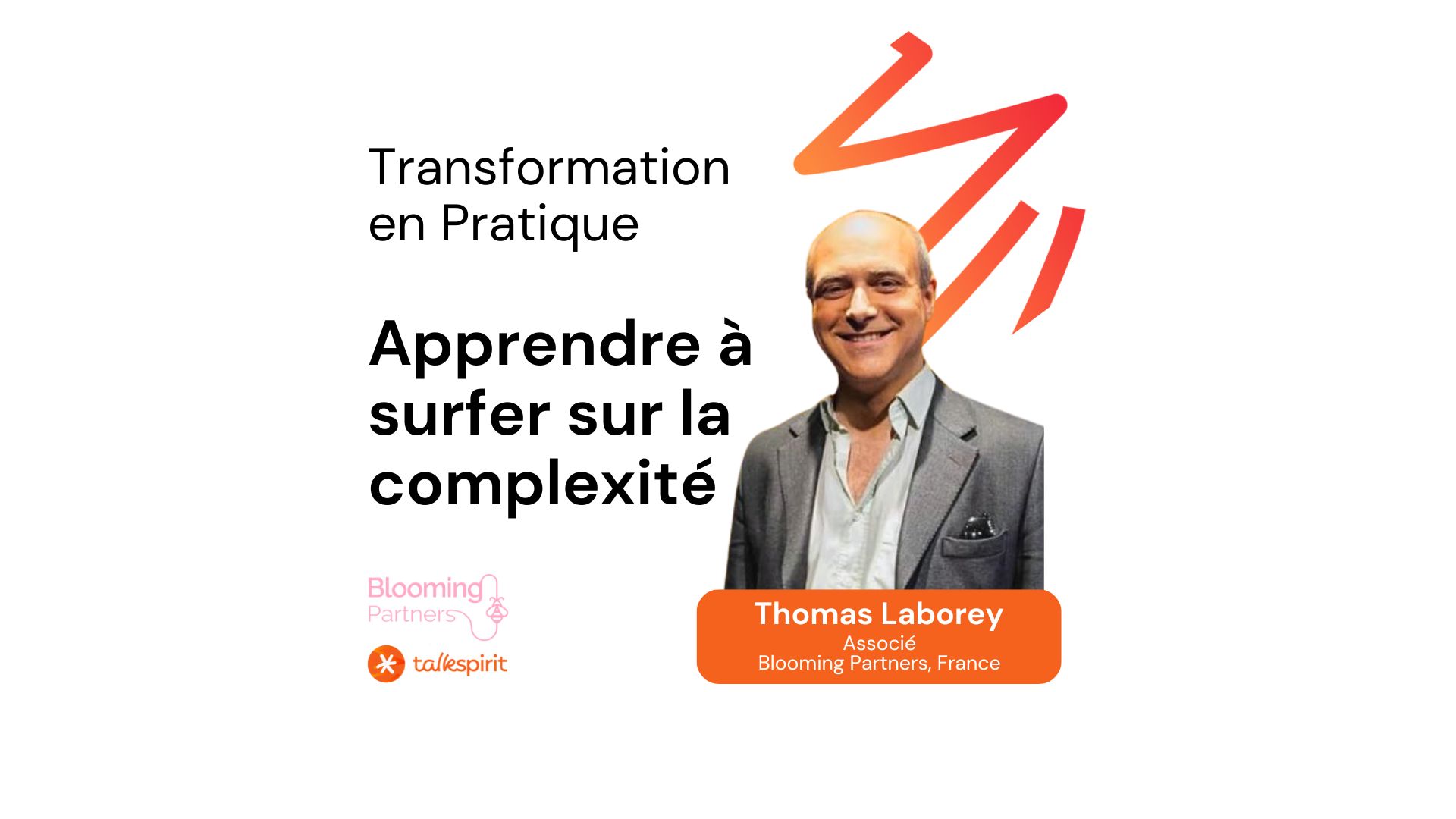
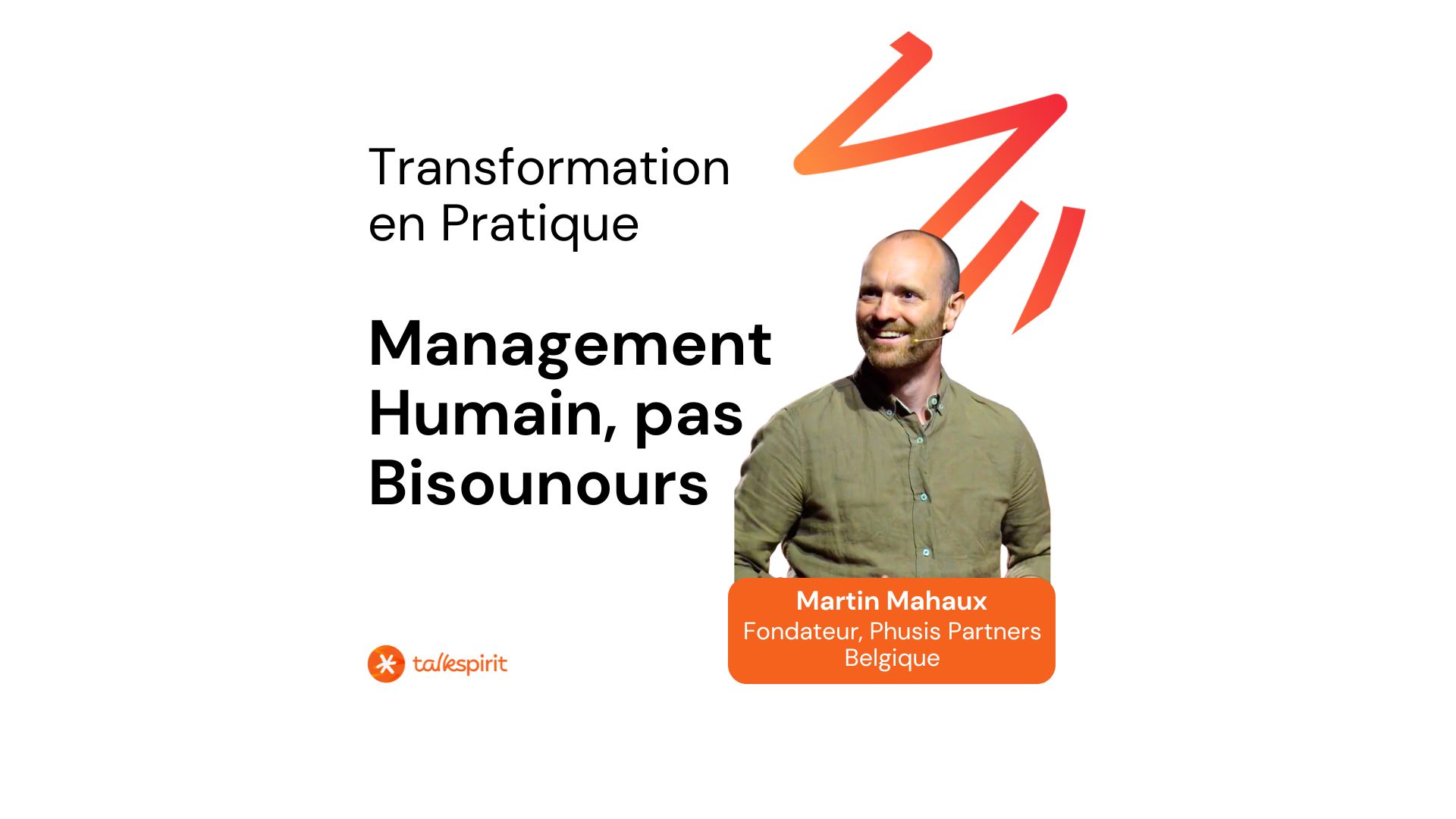
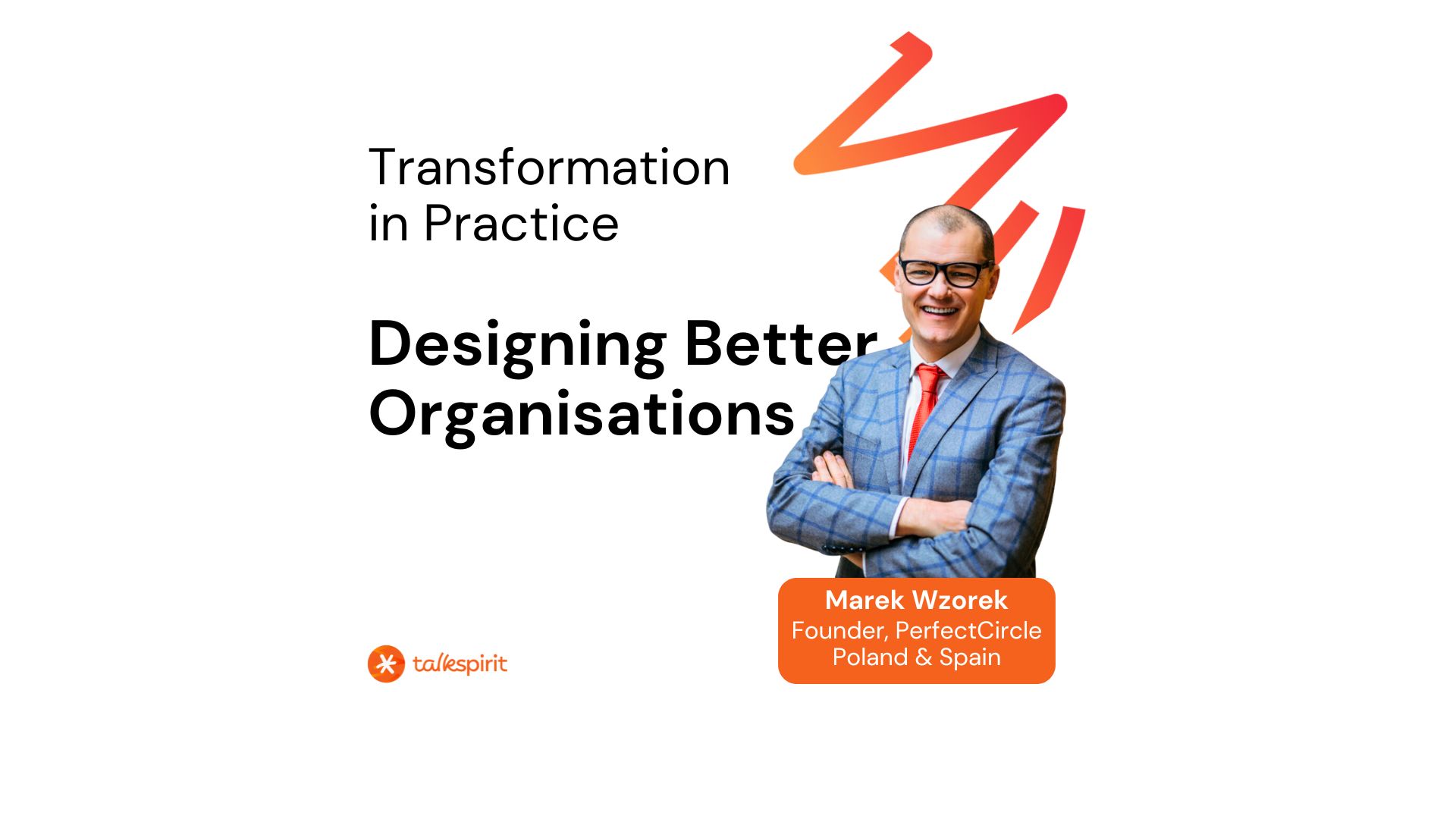
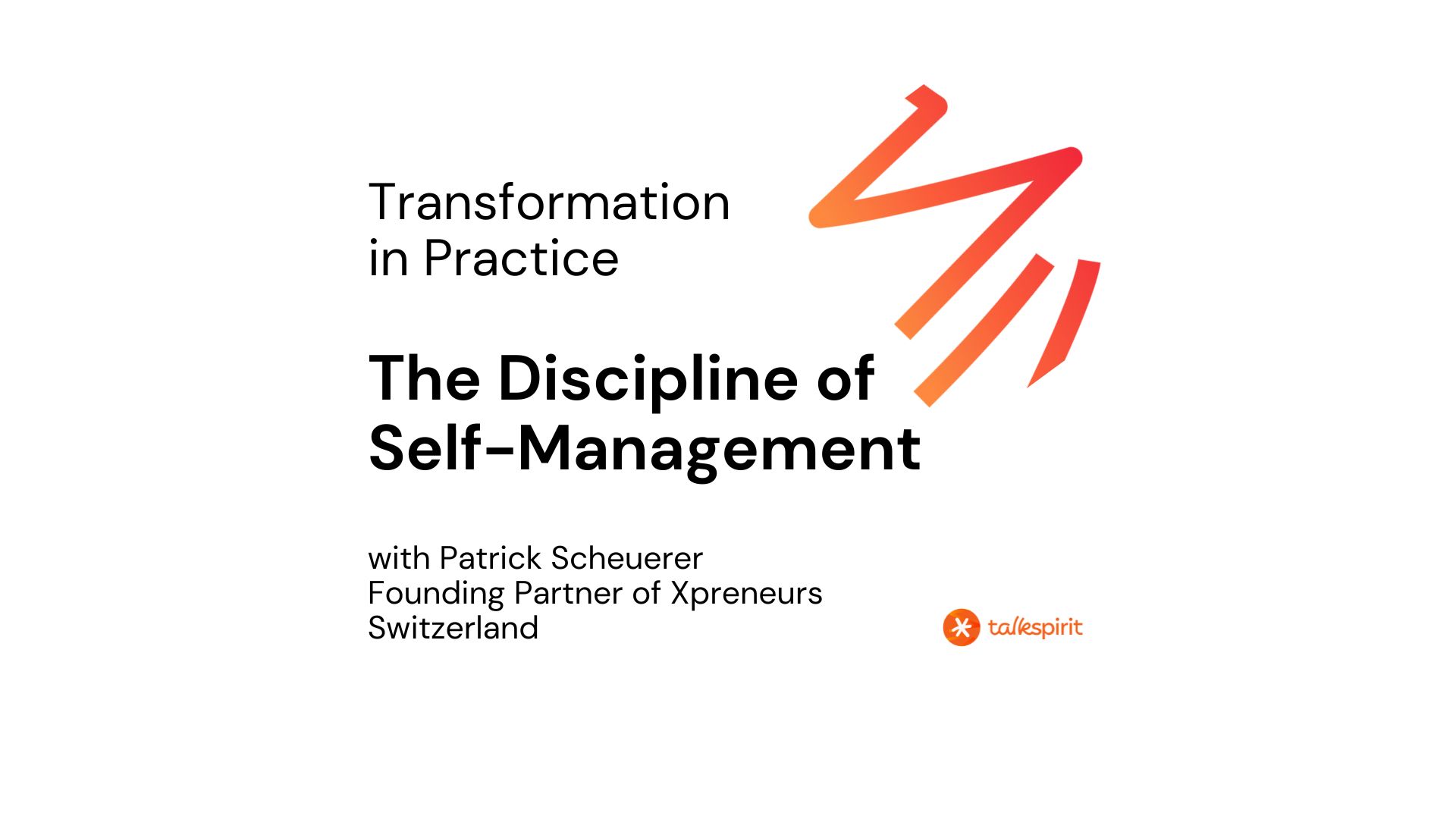

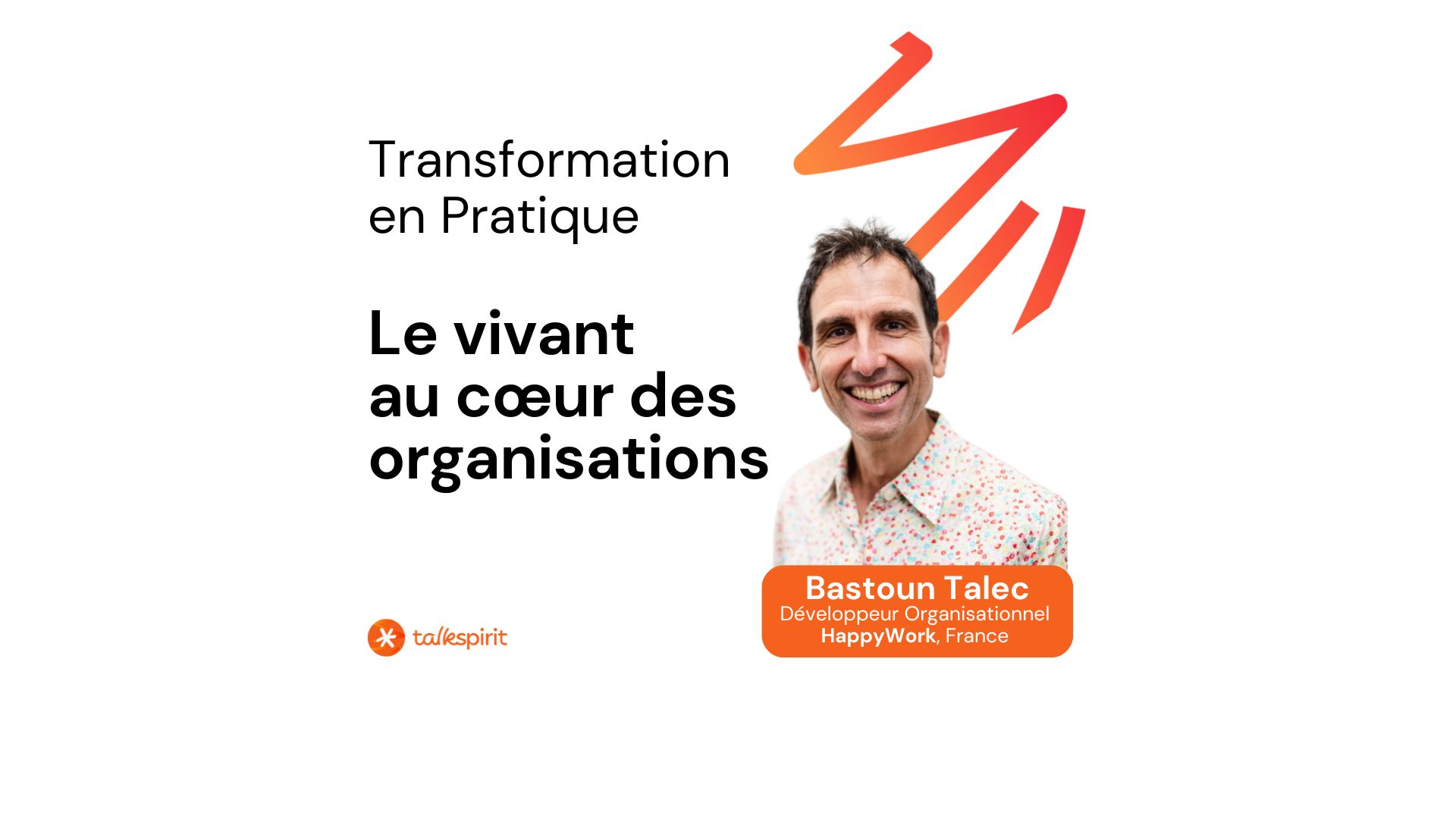

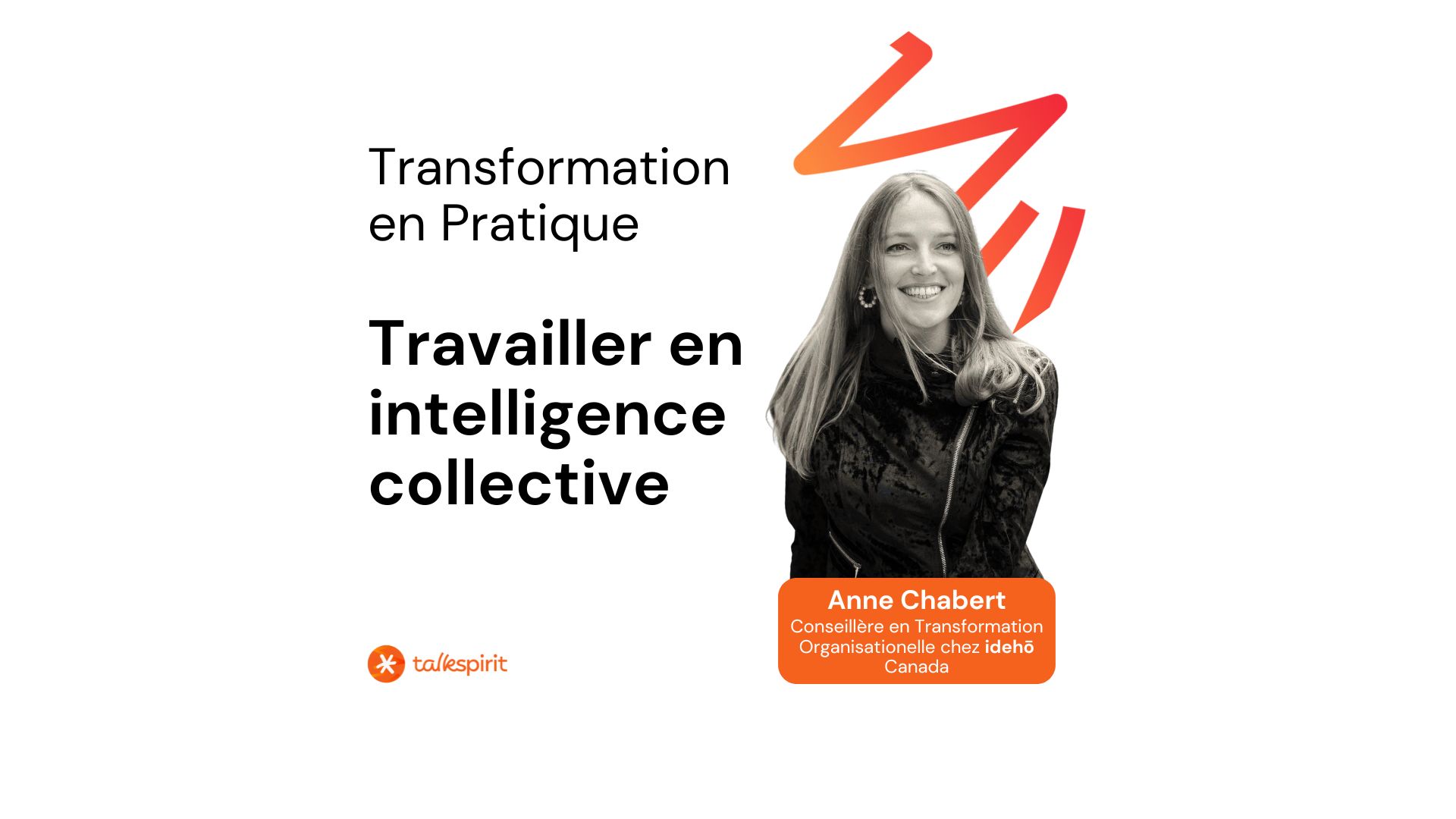
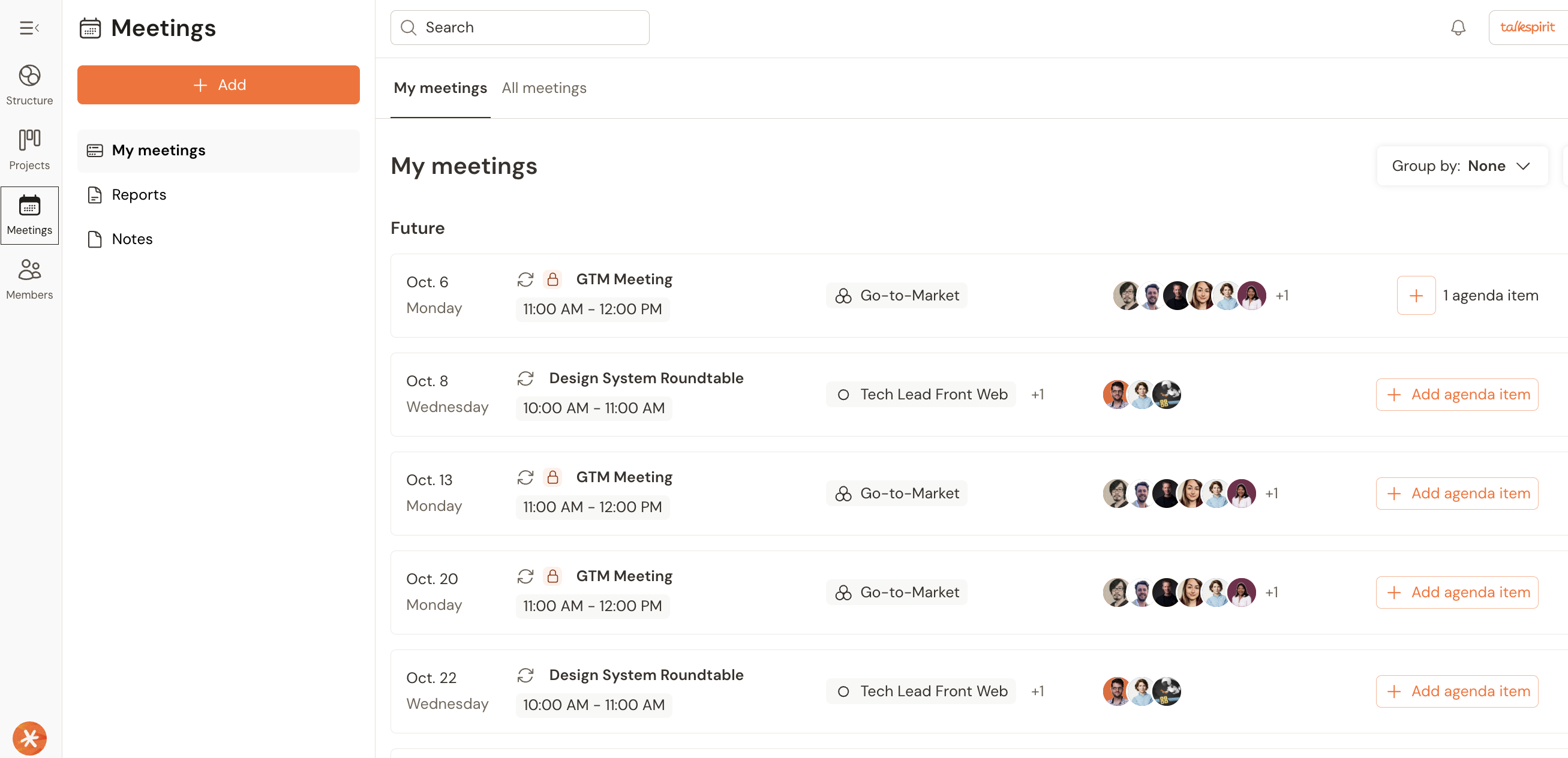



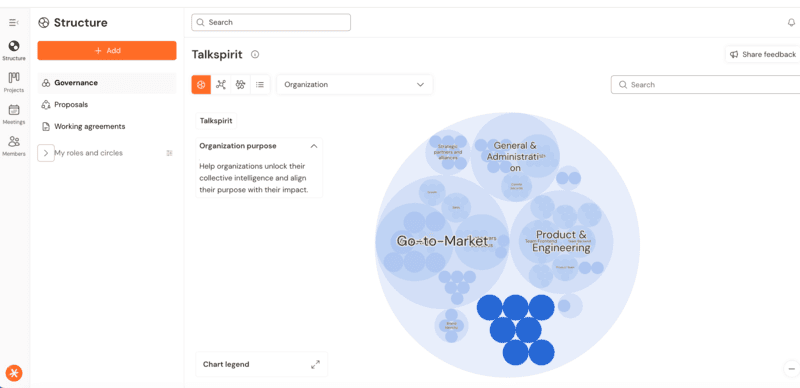

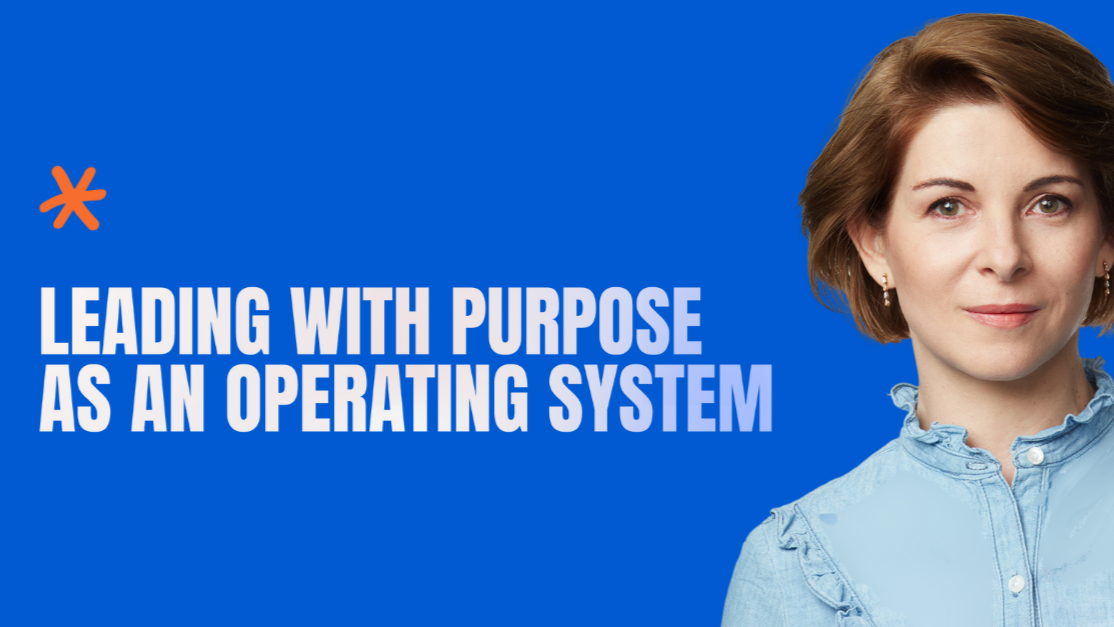









.jpg)

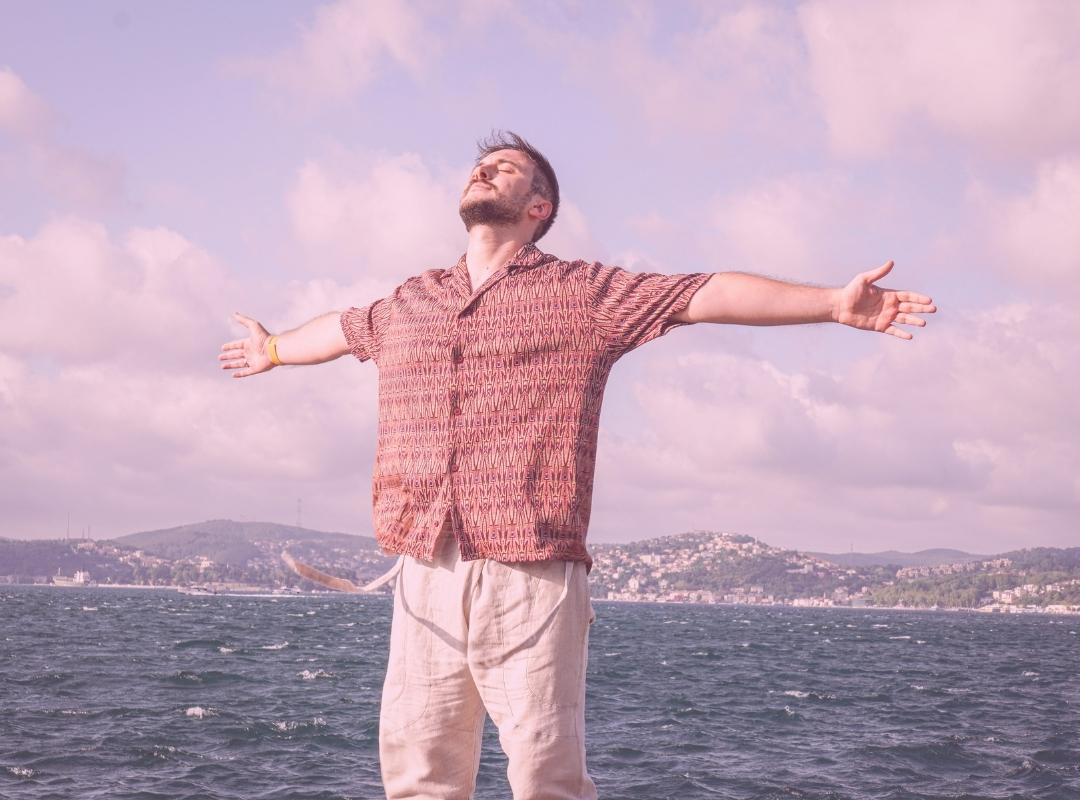




.jpg)
.jpg)









.jpg)
.jpg)


.jpg)

.jpg)


.jpg)











.jpg)




.jpg)



.jpg)

.jpg)



.jpg)






